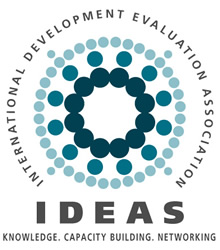may, 2018
02mayAll Day03UK Evaluation Society Annual Evaluation Conference 2018
Event Details
The theme of the 2018 UKES Annual Evaluation Conference is: The Quality of Evidence from Evaluation - demand, supply, and use Fundamentally, evaluation should provide information that is credible and useful,
Event Details
The theme of the 2018 UKES Annual Evaluation Conference is: The Quality of Evidence from Evaluation – demand, supply, and use
Fundamentally, evaluation should provide information that is credible and useful, enabling the incorporation of lessons learned into decision-making processes. This year’s theme focuses on quality throughout the evaluation cycle. By framing the theme around the evaluation cycle, we can consider the demand for, production and uptake of high quality evidence from evaluations.
Evaluations use often scarce human and financial resources, so they should be strongly demand-led, conducted to high standards, and produce useful evidence that informs stakeholders’ decision-making processes. Presenters of papers and posters may wish to consider quality aspects in one particular part of the cycle, or examine quality as a thread running through the entire cycle.
As noted in the keynote address at last year’s conference , some might consider we are in a ‘golden age of evaluation’, with high demand, associated funding, and growing sophistication about multiple methods that can assess complex situations. However, there are many challenges which question whether evaluations are fit for purpose in a ‘post-truth’ era, or at least an era in which ‘the narrative’ weighs more heavily than data-heavy analysis. Experts are distrusted, policies appear reactive and inconsistent, and communication condensed to 140 characters slogans. Publication of evaluations may be partial, biasing towards positive results, or they may be conducted well, albeit using inappropriate designs that do not answer the questions in which users are interested. Poor evaluations may thus be published because they have to be, regardless of quality. Alternatively, evaluations may not be published because the results are not what is ‘wanted’ by the commissioner.
Our current era, in which the means of communication have been so fundamentally changed, has been likened to Gutenberg developing the first printing press. The means of spreading information and influencing thinking has profoundly changed. Evaluations face challenges to be useful and influential in such circumstances, not least if the main output is a ‘classic’ evaluation report. Evaluators are exploring new opportunities presented by digital technology to widely communicate the learning and evidence from evaluations, but is this keeping pace with changes in society? Digital technologies also present opportunities to collect evaluation data and conduct analysis and synthesis in novel ways; they also provide platforms to involve citizens more directly in evaluations.
UKES considers this an extensive but pertinent theme when evaluation is paradoxically both burgeoning in some areas and under challenge to demonstrate utility in others. We would like to encourage evaluators, evaluation commissioners, and users of evidence from a broad range of sectors and disciplines, skills and perspectives to contribute to wide-ranging discussion of the quality of evaluations and the evidence from them by submitting an abstract, poster or signing up to attend the conference.
Note: This is not an IDEAS organised event. Any questions should be directed to the event organisers.
Time
may 2 (Wednesday) - 3 (Thursday)
Location
London, UK
61-65 Great Queen Street, London, WC2B 5DA



Comments 0
action created